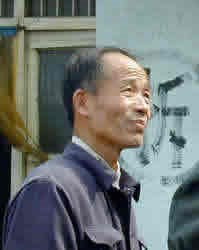One linguist believes the Huizhou Chinese should be treated "as a separate sublanguage and its speakers as a distinct entity within the mosaic of Sinitic peoples."
The Western Zhou Dynasty (1100-771 BC): It is thought that the Western Zhou rulers were a nomadic tribe who based their capital in Hao, near present-day Xian. The Western Zhou Dynasty came to an abrupt end in 771 BC, when barbarian tribes destroyed the capital of Hou. The Eastern Zhou Dynasty (770-221 BC): The Chinese consider the Eastern Zhou period as one of the greatest in their long history. During this time, the great Chinese philosophers Confucius and Laozi roamed the countryside. Since then, Confucianism and the Daoist religion founded by Laozi have left their mark on every generation of Chinese thought and their religions. During this era, the "mandate of heaven" was instituted. Political rulers were believed to have gained their position from heaven itself.
The Huizhou have a reputation as expert merchants and businessmen. A Chinese saying states: "No marketplace is so small there are no Huizhou people." By the sixteenth century, Huizhou merchants "began to assume a major role in the entire national economy [and] soon came to control much of the nation's rice, lumber and tea trade."
After taking control of the country, the Communists gradually implemented the atheistic, antireligion policies of Soviet Marxist Vladimir Lenin, who had stated, "Religion is the opium of the people. Religion is a kind of spiritual vodka in which the slaves of capitalism drown their human shape and their claim for any decent human life." But it begs the question whether the Communist system functions merely as a political system, or whether it also has some of the characteristics of a dynamic missionary movement with aspirations for world conquest.
Since 1949, Christianity has boomed in the region where the Huizhou live. The three provinces where Huizhou is spoken contain some of the highest concentrations of Christians in China.
Huizhou churches need revival fire.
Pray for Huizhou Chinese disciples to disciple others.
Pray for their churches to exhibit the fruit of the Holy Spirit, drawing others to the Lord.
Pray for the Lord to abundantly provide for the Huizhou Chinese as a testimony of his goodness and power.
Scripture Prayers for the Han Chinese, Huizhou in China.
Operation China, Asia Harvest, Copyrighted Used with permission.
| Profile Source: Joshua Project |










